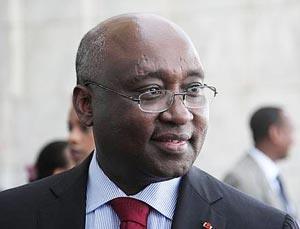
African Development Bank president Donald Kaberuka believes Africa, written off for decades as a hopeless continent always begging for aid, has now reached a milestone moment.
Report by Reuters
“It is not simply a tipping point in the fortunes of Africa, it is a tipping point in how the rest of the world looks at Africa as well,” he said at a summit of Brics emerging powers last week held for the first time in Africa.
As China, India, Brazil and Russia increasingly court Africa, he says this is changing perceptions of the region from “a continent of problems” to a source of business opportunities in infrastructure, financial services, and agriculture.
Sudan-born telecoms entrepreneur Mo Ibrahim, who has created a US$5 million annual prize to reward good governance in Africa, points to the record 86% Kenya election turnout as a sign Africans are embracing electoral democracy as a viable force. This contrasts with low turnouts in older western democracies.
Tipping the balance towards improving governance, Ibrahim said, was a critical mass of Africa’s young population who were better educated and better informed than their parents.
“They ask ‘Why are we like this? Why aren’t we like the Europeans and Americans, or like China?’,” he added.
Standard Bank’s Freemantle said this increasingly vocal “voice and agency of the people” was being strengthened by growing urbanisation and access to technology across Africa.
- Chamisa under fire over US$120K donation
- Mavhunga puts DeMbare into Chibuku quarterfinals
- Pension funds bet on Cabora Bassa oilfields
- Councils defy govt fire tender directive
Keep Reading
“These dynamics for me are all suggesting that political systems are having to be more nimble and relevant,” he said.
But Africa’s burgeoning growth, swelling population and blossoming wealth — for some — has a potential weakness in the widening inequality gap in most African societies today.
If the continent’s fast-growing young urbanised populations feel excluded from the material benefits of an economically rising Africa, or if these spoils are appropriated by ruling elites, then this risks touching off the same kind of social explosion that caused the “Arab Spring” in North Africa.
“We have to pay attention to inclusion. We cannot leave people behind,” Ibrahim said.
He urged governments to turn the economic boom into stable, lasting prosperity by investing in human development, education and infrastructure.








